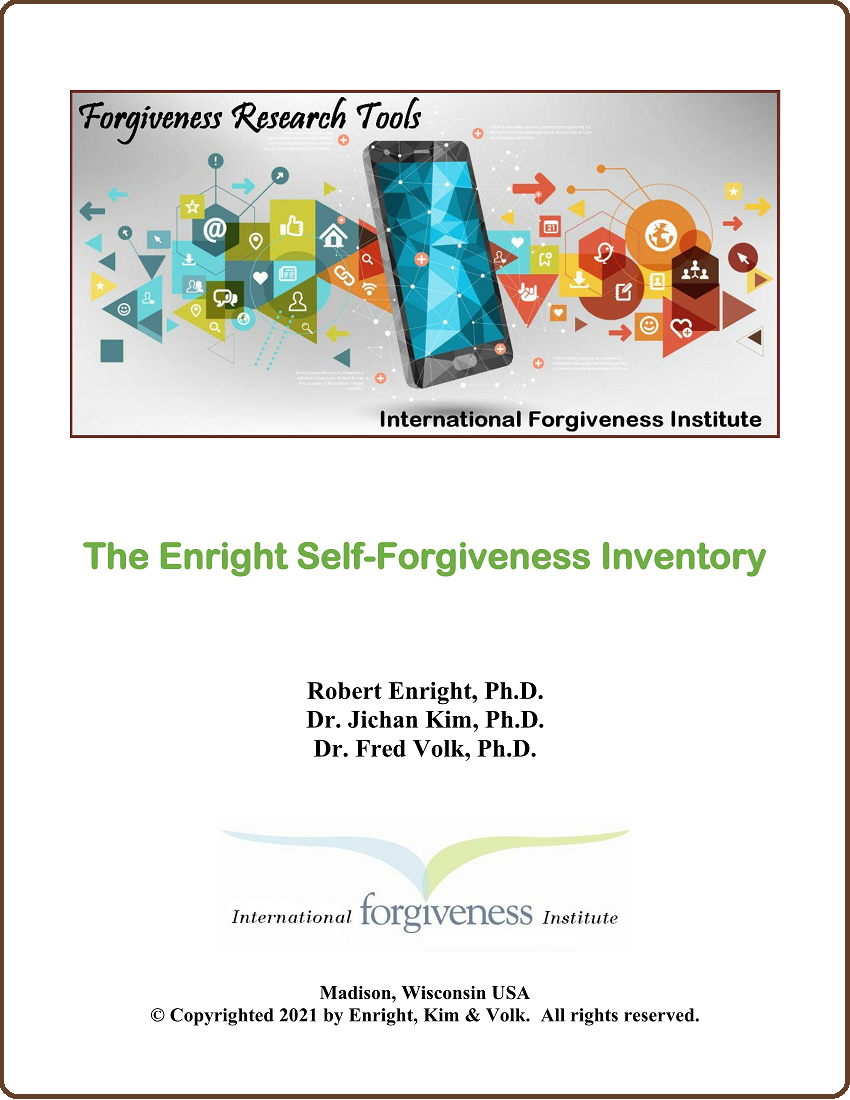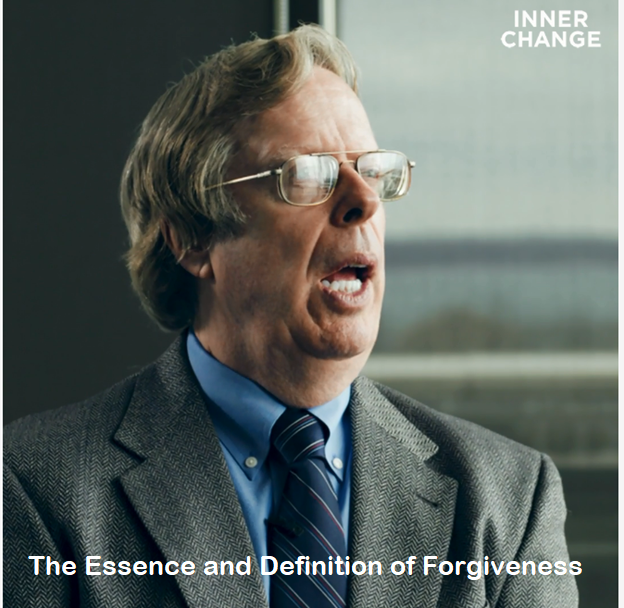Tagged: “Forgiveness Education”
How are forgiveness, mercy, and love related?
All three are moral virtues. Agape is the over-arching virtue out of which forgiveness emerges. Mercy does not necessarily emerge out of agape because mercy does not always require serving others through one’s own pain, as occurs in agape. The judge who shows mercy to a defendant by reducing a deserved sentence is not necessarily suffering in love for that defendant. Thus, not all aspects of mercy flow from agape. Forgiveness includes a number of virtues such as patience, kindness, and having mercy on others who behave badly. So, forgiveness is a specific part of agape. Forgiveness includes mercy, but mercy is not an over-arching virtue out of which forgiveness emerges. That distinction belongs to agape.
How do we promote the true meaning of forgiveness, given that there are so many misunderstandings of it?
We have resources to help, such as three self-help books (Forgiveness Is a Choice, The Forgiving Life, and 8 Keys to Forgiveness). We also have forgiveness education curriculum guides for teachers and parents in our Store. With all of these materials, we have tried to be very accurate regarding what forgiveness is and what it is not.
Coveted Forgiveness Research Tools Now Available at No Cost
The man Time magazine has called “the forgiveness trailblazer” is blazing forward in a new direction by offering to social science and moral development researchers around the world the accumulation of forgiveness research tools he has developed over the past 35 years. And he is giving them away at no cost and with no strings attached.
Dr. Robert Enright, co-founder of the International Forgiveness Institute (IFI), announced today that he is now providing his highly regarded scientific research tools absolutely free to any forgiveness researcher who requests them.
“This initiative is designed to help expand and broaden the growing collection of crucial forgiveness knowledge,” Dr. Enright says. “This area of moral development has already had significant impacts in the realms of education, medical treatment, and emotional therapy, so why not try to expand on that?”
 Often introduced as “Dr. Forgiveness” because of his 35-year academic commitment to researching and implementing forgiveness programs, Dr. Enright is acknowledged as the unquestioned pioneer in the scientific study of forgiveness. The research tools he and his associates have developed have become highly coveted tools because of his meticulous validation of the scientific procedures he employs.
Often introduced as “Dr. Forgiveness” because of his 35-year academic commitment to researching and implementing forgiveness programs, Dr. Enright is acknowledged as the unquestioned pioneer in the scientific study of forgiveness. The research tools he and his associates have developed have become highly coveted tools because of his meticulous validation of the scientific procedures he employs.
All of Dr. Enright’s research is done in conjunction with the University of Wisconsin-Madison where he is a Professor of Educational Psychology. You can access his peer-reviewed empirical studies, research abstracts, and published studies at Forgiveness Research.
In addition to sharing his research results, Dr. Enright is now making available his user-validated forgiveness research tools at no cost. Those tools include:
- The Enright Forgiveness Inventory-30 (EFI-30) – This tool is a shorter version of the Enright Forgiveness Inventory for Adults that has become the interpersonal forgiveness measure of choice for research professionals in the U.S. and abroad since its development in 1995. The EFI-30 reduces the number of items from 60 to 30 for the purpose of a more practical assessment of this construct. Data from the United States were used in the creation of the new measure and applied to seven nations: Austria, Brazil, Israel, Korea, Norway, Pakistan, and Taiwan to develop its psychometric validation.
. - The Enright Self-Forgiveness Inventory (ESFI) – This measure is based on the conceptualization of forgiveness as a moral virtue. The ESFI is a 30-item scale featuring six subscales with five items each. Five additional items at the end of the scale allow for measurement of pseudo self-forgiveness (PSF). Although several competing self-forgiveness measures exist, Dr. Enright’s is the only one that captures the idea that self-forgiveness is a moral virtue that includes behavior toward the self.
. - The Enright Group Forgiveness Inventory (EGFI) – Newly validated and published earlier this year, the EGFI has 56 items across seven subscales with each subscale having eight items. Those subscales measure a group’s motivation and values regarding forgiveness, peace, and friendliness toward the other group. Like the ESFI, it also has a PSF component and has dramatic implications for its ability to enhance peace efforts in the world.
.
To develop and validate the EGFI, Dr. Enright worked with a team of 16 international researchers who collected data from 595 study participants in three different geographic and cultural settings of the world—China and Taiwan, Slovenia, and the US. The study team’s findings documented that this new measure has strong internal consistency as well as convergent and discriminant validity.
. - The Enright Forgiveness Inventory for Children (EFI-C) – The EFI-C is an objective measure of the degree to which a child forgives another who has hurt him or her deeply and unfairly. It is a 30-item scale similar to the 60-item adult version and is presented orally to very young children and in writing to those who can read well. Thanks to a researcher in Pakistan, the EFI-C is now available in the Urdu language—the native language of an estimated 230 million people, primarily in South Asia.
Dr. Enright is the author or editor of seven books. He published the first social scientific journal article on person-to-person forgiveness and the first cross-cultural studies of interpersonal forgiveness. He also pioneered scientific studies of forgiveness therapy and developed an early intervention to promote forgiveness–the 20-step Process Model of Forgiving.
By publicly sharing all his research studies and results in more than 100 publications over the years, Dr. Enright has earned recognition as being in the forefront of the science of forgiveness. The Los Angeles Times described Dr. Enright as “the guru of what many are calling a new science of forgiveness.” The Christian Science Monitor called him “the father of forgiveness research.”
Learn more about Dr. Enright’s free tools on the Forgiveness Research Tools page.
The Essence and Definition of Forgiveness
A just-released video interview with forgiveness guru Dr. Robert Enright called “The Essence and Definition of Forgiveness” is now available to view at no cost on a website called Inner Change which bills itself as “a video journey into our collective humanity.”
The 2 min. 15 sec. video was recorded by a talented group of film producers based in Switzerland that has cinematic staff in the US and more than a dozen other countries around the world. It is one of 13 short video segments that Inner Change has recorded with Dr. Enright and which it will release over a 2-year period. Thus far, four of the Dr. Enright interviews have been made available for viewing including:
- The Essence and Definition of Forgiveness (2 min. 15 sec.) – In this interview, Dr. Enright defines forgiveness from an interdisciplinary, cross-cultural, and interfaith perspective that basically includes what Socrates would call the “essence” or core of forgiveness. He concludes by adding that the highest form of forgiveness is to unconditionally love those who hurt us.
- How I Became Involved in Forgiveness Studies (4 min. 16 sec.) – Dr. Enright explains how after years of studying moral development at the behest of his employer, the University of Wisconsin-Madison, he asked himself, “What might make a difference in the world in people’s lives?” The answer he came up with in 1985 was “the virtue of forgiveness” which he saw as a way to heal from the injustices we all face.
- The Two Paradoxes of Forgiveness (1 min. 0 sec.) – In this brief segment, Dr. Enright outlines the two paradoxes (apparent contradictions that are not contradictions) of forgiveness: 1) by forgiving, you are giving unexpected goodness to the person who hurt you; and, 2) in the process, you become stronger and emotionally healed.
- Learning to Forgive in the Small Things (3 min. 19 sec.) – By practicing forgiveness with the smaller hurts in your life, what Dr. Enright calls “exercising your forgiveness muscles,” you can become forgivingly fit and more easily handle the larger injustices in life.

Dr. Robert Enright, founder – International Forgiveness Institute
The Inner Change website includes interviews with psychologists, spiritual teachers, activists, and neurologists. Those interviews are part of the website’s “Peace Video Library” where visitors can “discover what it means to be fully human, what resources we all share, how we can tap into our full potential as humans.” Other website features include musical meditation segments following each video and a collection of more than 30 music videos all with original songs recorded at Chernobyl (the site of the 1986 nuclear power plant disaster) and the nearby ghost town of Prypiat in Northern Ukraine.
Other notable forgiveness-related personalities featured on the site include:
1) Marina Cantacuzino, founder of the Forgiveness Project, a nonprofit that collects and shares stories from both victims/survivors and perpetrators of crime and conflict who have rebuilt their lives following hurt and trauma;
2) Bill Pelke who forgave the young woman who murdered his grandmother by stabbing her 33 times with a butcher knife and who went on to found an organization called Journey of Hope–from violence to healing that provides support to families of murder victims; and,
3) Dr. Andrew Newberg, a physician and neuroscientist who studies the relationship between brain function and various mental states who is also a pioneer in the neurological study of religious and spiritual experiences (a field known as “neurotheology”) as demonstrated in his recent book The Rabbi’s Brain.
I am not someone who likes to go to psychotherapy. Yet, I prefer not to be alone on the forgiveness process. What would you recommend under this circumstance?
We have three self-help books that lead people through the forgiveness process: Forgiveness Is a Choice, The Forgiving Life, and 8 Keys to Forgiveness. I recommend that you choose one of these books and get two copies, one for a trusted friend and one for you. Both of you can go through the forgiveness process together, even sharing your own unique journeys with each other. This kind of support may help both of you forgive one person who has hurt your friend and one person who has hurt you.



